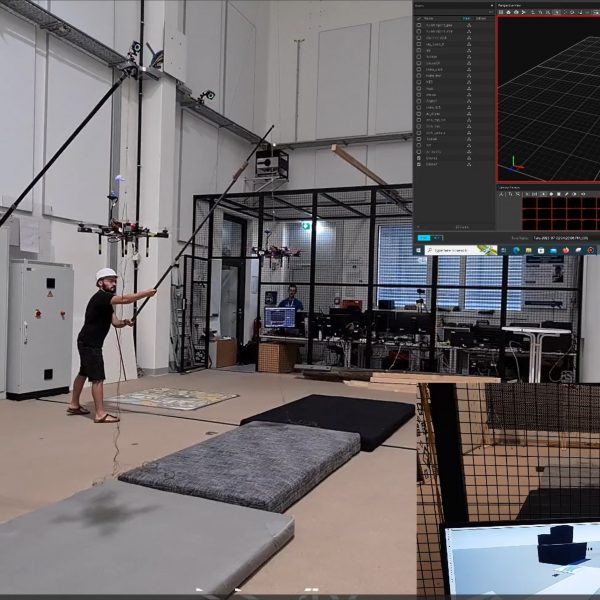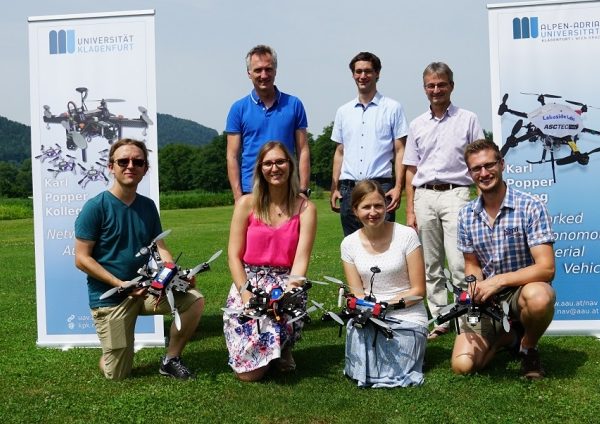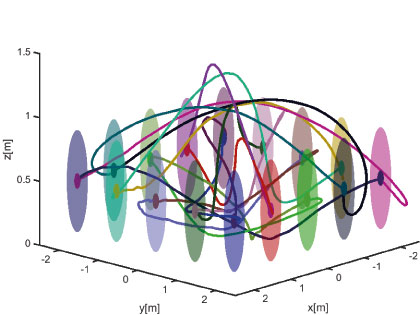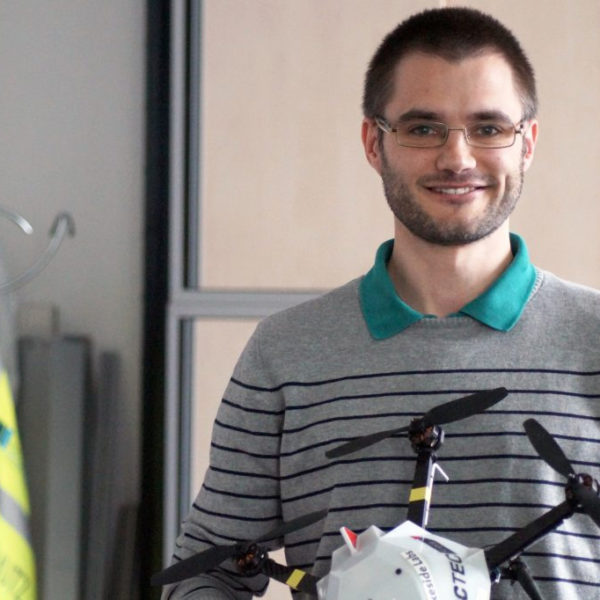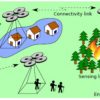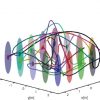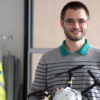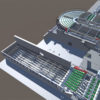Over the course of the past years, drones have proven to be a capable tool in diverse civil domains, such as agriculture, construction, inspection, surveillance, search and rescue and even space exploration. Existing software tools for specifying and executing multidrone missions are limited to route planning or tightly coupled to […]
ResearchTopics
Minimizing idleness in multi-robot patrolling
Patrolling is the task of continuously monitoring an environment over a long period of time. Many multi-robot applications, including disaster response, security tasks as well as exploration and mapping, can be represented as a patrolling problem. In our recent paper, we investigated multi-robot patrolling with limited connectivity among robots and […]
Multidrone flight demonstration
The University of Klagenfurt launched the Karl Popper Doktorats- und Wissenschaftskolleg “Networked Autonomous Aerial Vehicles (NAV)“ in October 2017; having completed a cycle of just under four years, it is now coming to an end. Stephan Weiss, who serves as the speaker of the programme, reflects on a success story: […]
Multidrone constellation changes
Planning the simultaneous movement of multiple agents represents a challenging coordination problem, and ideally safety and efficiency are jointly addressed. In his master thesis, Paul Ladinig developed a planning algorithm for fast and energy-efficient trajectories with reduced collision potential from a start to an end constellation. This new approach combines […]
Privacy-protection research in 3sat science show nano
Our research on privacy-protection in cameras and in drone videos was broadcasted across Germany, Switzerland, and Austria. The science show nano from 3sat reported about our TrustEYE prototype for protection onboard cameras and our video anonymization in aerial videos. The key idea of TrustEYE is to protect access to the […]
Persistent surveillance with multiple robots
Persistent surveillance is the task of continuously monitoring an environment over a long period of time. Many multi-robot applications, including disaster response, security tasks as well as exploration and mapping, can be represented as a persistent surveillance problem. Understanding the problem’s properties and developing efficient algorithms for solving the problem […]
